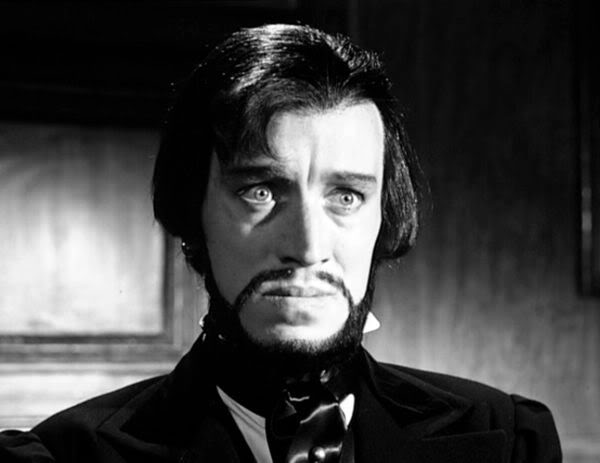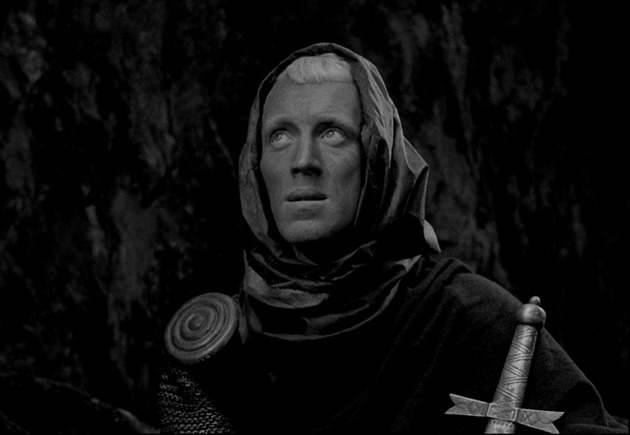Last week the announcement came down the Internet
Entertainment Pipeline that the controversial, sexual-assault-centric HBO
series “Game Of Thrones” would be getting a new cast member, an 86-year-old
screen veteran named Max von Sydow. One of the more reputable of the Internet
Entertainment Pipeline’s outlets, Entertainment Weekly, cited von Sydow as “‘Exorcist’ star,” which he certainly was. A more fancentric source, which may
or may not have been trolling, named von Sydow as a star of the
as-yet-unreleased “Star Wars” episode “The Force Awakens.” Which indeed he also
is.
These citations touched off great waves of disapprobation
from Old People and Cinephiles and the overlap of these two groups on social
media the world over. Because Max von Sydow is more than just a star of “The
Exorcist” and “The Force Awakens.” He’s also Brewmeister Smith in the underrated
SCTV-derived comedy “Strange Brew.”
And he’s also a genuine legend, a giant among actors of BOTH
stage and screen, and the lean, severe face of several unforgettable characters
in more than a handful of capital-G-Great movies, and a bunch of very good ones.
In this and a subsequent post, please find an illuminating and, I promise,
enjoyable primer to the work of this amazing actor.
“The Seventh Seal” (1957)
Max von Sydow and his lifelong friend and collaborator
Ingmar Bergman grew acquainted in the Swedish theater, where, von Sydow once
recalled, he and the maestro did a fair amount of comedy. But their movie
collaborations are known for their intensity, profundity, and darkness.
Although as we’ll see shortly, that’s not the whole picture. In any event, both
the actor and director made a huge impact on international art cinema with this
movie, a tragicomic allegory set in medieval Europe after the Crusades. Von
Sydow plays Antonius Block, a lean knight returning to a desolate,
plague-ridden homeland. Death himself approaches Antonius and challenges him to
a game of chess, the stakes being of course the knight’s life. This
much-parodied movie became a touchstone of art film and a target for the
ridicule of such. The charge against Bergman’s movies is that they’re
“pretentious” and of course they’re no such thing. There’s also “slow” and
“difficult” and so on. The thing is, “Seventh Seal” is actually a very brisk
(97 minutes!), engaging, beautifully
shot, and sometimes funny movie.

“The Magician” (1958)
This 19th century story of magic and illusion—two
different things—gets a lot of mileage out of its metaphors, with Von Sydow as
the titular showman/conjurer. A man of several faces, he swindles his way into
wealthy drawing rooms until he’s challenged by a vengeful rationalist. This
1958 beauty is the closest von Sydow and writer/director Ingmar Bergman came to
making a comedy together; one could call this a dark movie with a light streak.
“The Virgin Spring” (1960)
As von Sydow and Bergman’s collaboration dug deeper, the
material became ever darker. Here, the director and actor return to the
medieval, in a story of rape, revenge, and faith. This is, indeed, heavy stuff,
depicting existentially challenged characters poised on a knife-edge separating
paganism and Christianity. Where the film itself fails with respect to this may
surprise you—and recall the work of another Nordic master of cinema, the Danish
director Carl Dreyer. Von Sydow’s work as the father of a murdered girl is one
of his most eloquently tortured performances. Believe it or not, the movie’s
plot line directly inspired the harrowing grindhouse classic “The Last House On
The Left.”
Although he was only 31 when “The Virgin Spring” was
released, von Sydow had a longstanding knack for playing older characters. His
patriarch in this movie has a bearing we’d associate with someone at least a
decade past von Sydow’s actual age. His ability in this area proves useful
indeed as his career progressed.

“Through A Glass Darkly” (1961)
Von Sydow is a supporting player in this sledgehammer of a
contemporary drama from Bergman, an economical (almost ruthless) account of a
woman’s descent into complete madness
after discovering her own father has been exploiting her mental illness for his
own creative work. Von Sydow plays the woman’s sympathetic but somewhat
clueless husband, one of the actor’s rare forays into playing something like an
ordinary man.
“The Greatest Story Ever Told” (1965)
Speaking of non-ordinary men, great American filmmaker
George Stevens wanted a New Face to play Jesus Christ in his epic, cameo-filled
adaptation of the Gospels. Von Sydow, who’d never acted in an English-language
movie before (but whose English is not just impeccable but better than that of
most native speakers, if we’re gonna be brutally honest about it), got the role
based on the intense soulfulness he’d displayed in Bergman pictures. “Greatest
Story” is almost a combination White Elephant/Termite film—it’s a big studio
undertaking that has undercurrents of deeply personal moviemaking—and it
doesn’t altogether succeed.

“The Quiller Memorandum” (1966)
“Greatest Story” did not catapult von Sydow to international
superstardom, and his next big Hollywood production, “Hawaii,” in which he
costarred with Julie Andrews (no, really) was plagued by production troubles
and subsequently flopped. His profile in English-speaking films would largely,
from that point on, be narrowed to character roles, often in star-studded
thrillers. This one, from a Harold Pinter script, is a pretty good one, and von
Sydow gets to flex his villain chops, which are considerable, playing the
leader of a neo-Nazi group menacing George Segal.
“The Hour Of the Wolf” (1968)
As he diversified, von Sydow continued to work with Bergman,
although their collaboration would end soon after this bonafide horror film
(von Sydow’s character is physically, not just psychically, attacked by
demons). A frightening, sometimes hard-to-watch character study, it was an
exhausting ordeal for both director an actor. Von Sydow had wanted to return to
Bergman for his 1988 first farewell to cinema, the very great “Fanny And
Alexander,” but business negotiations squelched the deal, a course of
events which the actor says he deeply regrets.
“The Emigrants”/”The New Land” (1971/1972)
Swedish director Jan Troell is in some respects a more
conventional artist than Bergman, but he’s a narrative filmmaker of the first
rank with a tremendous feel for period and character. These two films pair von
Sydow with the beautiful and prodigiously talented Liv Ullmann (with whom he
costarred in several Bergman pictures) in a sweeping but simple story of a
couple who make their way from Sweden to the U.S. in the late 19th century.












